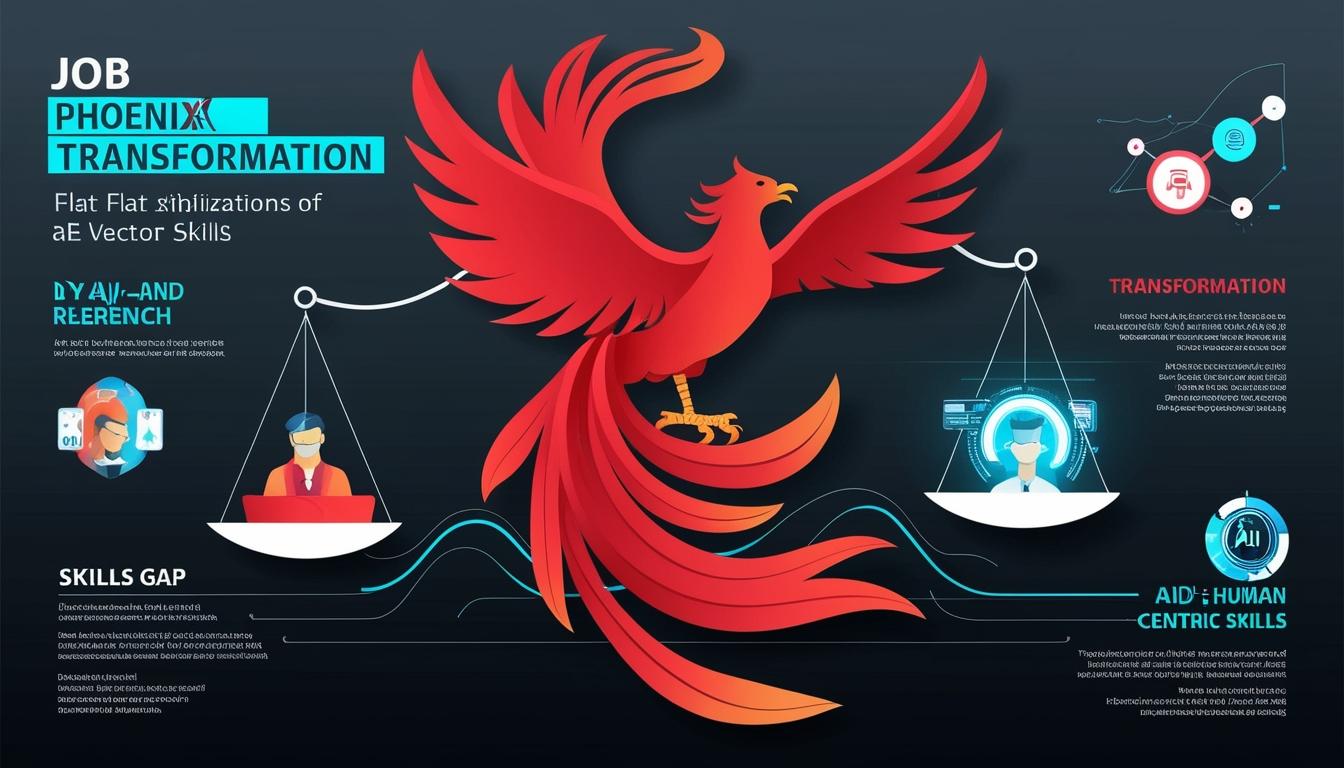The World Economic Forum’s Future of Jobs Report 2025 forecasts significant changes in the global job landscape, projecting that approximately 22% of positions will be disrupted by 2030. For every displaced role, the report anticipates a net gain of 78 million jobs, with a total of 170 million new roles created, juxtaposed against 92 million roles that may face displacement due to evolving job requirements.
Driving this transformation are several factors, including technological advancements, demographic shifts, geoeconomic tensions, and overarching economic pressures. These elements are fundamentally reshaping industries and the nature of professions around the world. The report underscores the growing challenges posed by the skills gap, noting that nearly 40% of job-related skills are expected to undergo significant change by 2030. Indeed, a survey indicated that 63% of employers consider this gap to be the primary barrier to executing effective business transformations.
As technology continues to advance, the demand for skills is shifting. There is an anticipated surge in the need for expertise in areas such as artificial intelligence (AI), big data, and cybersecurity. Nevertheless, the report highlights that human-centric skills—such as resilience, flexibility, and creative thinking—are equally critical for success in this fast-evolving job market. The ability to combine both technical and human skills is becoming increasingly essential.
Particular sectors are predicted to experience substantial growth. Frontline roles—comprising farmworkers, delivery drivers, and construction workers—are expected to thrive by 2030. Additionally, essential sectors such as healthcare and education will expand, buoyed by demographic trends that drive the demand for nursing professionals and secondary school educators. Conversely, the report identifies roles such as cashiers, administrative assistants, and graphic designers as among those facing the steepest declines due to automation and the rise of generative AI (GenAI), which are reshaping the labour market.
The report reveals that many organisations are turning to AI as a means to unlock new business opportunities, with half of employers planning to implement these technologies. However, amid the shift towards automation, 41% of employers anticipate a reduction in staff numbers as specific tasks become automated. In contrast, nearly half of employers are considering redeploying employees affected by these changes, signalling a dual approach to mitigating job displacement while also addressing pressing skill shortages.
Economic challenges, such as the rising cost of living and slower growth, further complicate workforce dynamics. These pressures are escalating the demand for skills that encompass agility, resilience, and creative problem-solving. Additionally, demographic shifts are influencing the need for particular roles; ageing populations in higher-income regions are increasing the requirement for healthcare practitioners, while expanding working-age populations in lower-income areas amplify the demand for educators. In light of these developments, workforce strategies centred on mentorship, talent management, and teaching capabilities are becoming pivotal.
The report advocates for immediate and collaborative action among organisations, governments, and educational institutions to bridge the skills gap effectively. It emphasises the necessity of investing in reskilling and upskilling initiatives as well as creating accessible pathways for emerging roles in anticipation of future workforce demands.
Till Leopold, the Head of Work, Wages and Job Creation at the World Economic Forum, emphasised the urgency of these trends, stating, “Trends such as GenAI and rapid technological shifts are upending industries and labour markets, creating both unprecedented opportunities and profound risks. The time is now for organisations and governments to work together, invest in skills and build an equitable and resilient global workforce.”
Source: Noah Wire Services
